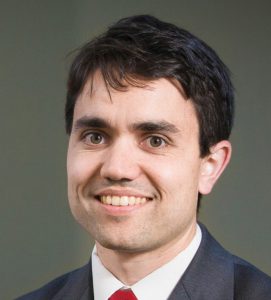
Justin Collings is Francis R. Kirkham Professor of Law at Brigham Young University J. Reuben Clark Law School and author of Democracy’s Guardians: A History of the German Federal Constitutional Court, 1951-2001(Oxford University Press, 2015)
Global lockdowns intended to slow the spread of COVID-19 have raised wrenching questions about religious liberty. Although many faith communities have voluntarily shuttered to combat the plague, many religious people have chafed at regulations that require religious sanctuaries to close while permitting liquor stores to offer their “essential services.” Why, the faithful wonder, is booze more essential than the Sacred Host? Why should rum trump Ramadan? Some believers have expressed their anguish in constitutional challenges. In a pair of noteworthy decisions, the German Federal Constitutional Court has grappled with the tension between public health and religious exercise. In both cases, the Court has charted a pragmatic course through the crisis.
In a decision dated 10 April 2020, the Court rejected a petition for a preliminary injunction against a Hessian state regulation that banned “gatherings in churches, mosques, and synagogues,” as well as “the gatherings of other religious denominations.” The regulation went into force on March 18th and was set to expire automatically on April 19th. The complainant was a Catholic who wished to take part in the Eucharist. He objected that the restrictions were disproportionate.
The Court disagreed. The justices conceded that the regulation constituted an “extremely serious infringement of religious liberty” (ein überaus schwerwiegender Eingriff in die Glaubensfreiheit)—all the more so since the ban encompassed Holy Week, including Good Friday and Easter, the liturgical climax of the Christian calendar. But even such a serious infringement was justified, the Court concluded, by the imperative need to constrain the plague in the early stages of the Corona pandemic. The justices were reinforced in their conclusion by the fact that the heightened risk of infection associated with religious gatherings was not limited to believers who voluntarily took part. It was borne also by third parties who had no choice in the matter.
All the same, the Court added that the authorities did not enjoy carte blanche to combat COVID-19 by restricting religious worship. Instead, the regulation must be reevaluated going forward to ensure that the restrictions remained proportionate to the relevant risks of infection.
Nineteen days later, the Court made clear that it was serious about these provisos. In a decision dated 29 April 2020, the Court ruled that, in the current stage of the Corona crisis, religious gatherings could no longer be categorically banned. During a transitional phase, authorities needed to allow the possibility of exceptions in individual cases.
In this case, the petition for a preliminary injunction was filed by a Muslim Association, which sought exceptional permission to gather in Mosques for Friday prayers during Ramadan. The Association pointed out that the relevant Lower Saxon regulations already allowed shops and stores to reopen. The Court observed that the risk of infection can be greater in religious gatherings than in shops but concluded that, under the current circumstances, a total ban on religious gatherings was excessive. Instead, the authorities needed to allow for individual exceptions, though they could qualify such permission by mandating precautions (face masks, physical-distancing measures, etc.).
These two decisions reflect a fluid, pragmatic approach that seeks an ongoing balance between public health needs and communal religious rights. The Court seems disinclined to make sweeping pronouncements about general principles, not least because the preliminary injunction format is uncongenial to such pronouncements. On the other hand, the justices seem willing to defer to the authorities but also to limit such deference. They have required a flexible approach, responsive to the pandemic’s fluctuating risks. The Court acknowledges the need for emergency measures but insists that those measures be temporary and proportional.
The stance strikes this reviewer as a sensible one. It gives officials room for maneuver but requires them to consider the individual needs of religious minorities. It allows emergency measures but requires that they be monitored and updated. It pushes for a balancing of values and a weighing of costs. That ongoing pursuit of balance seems a salutary tonic in a time when so much seems out of joint.
